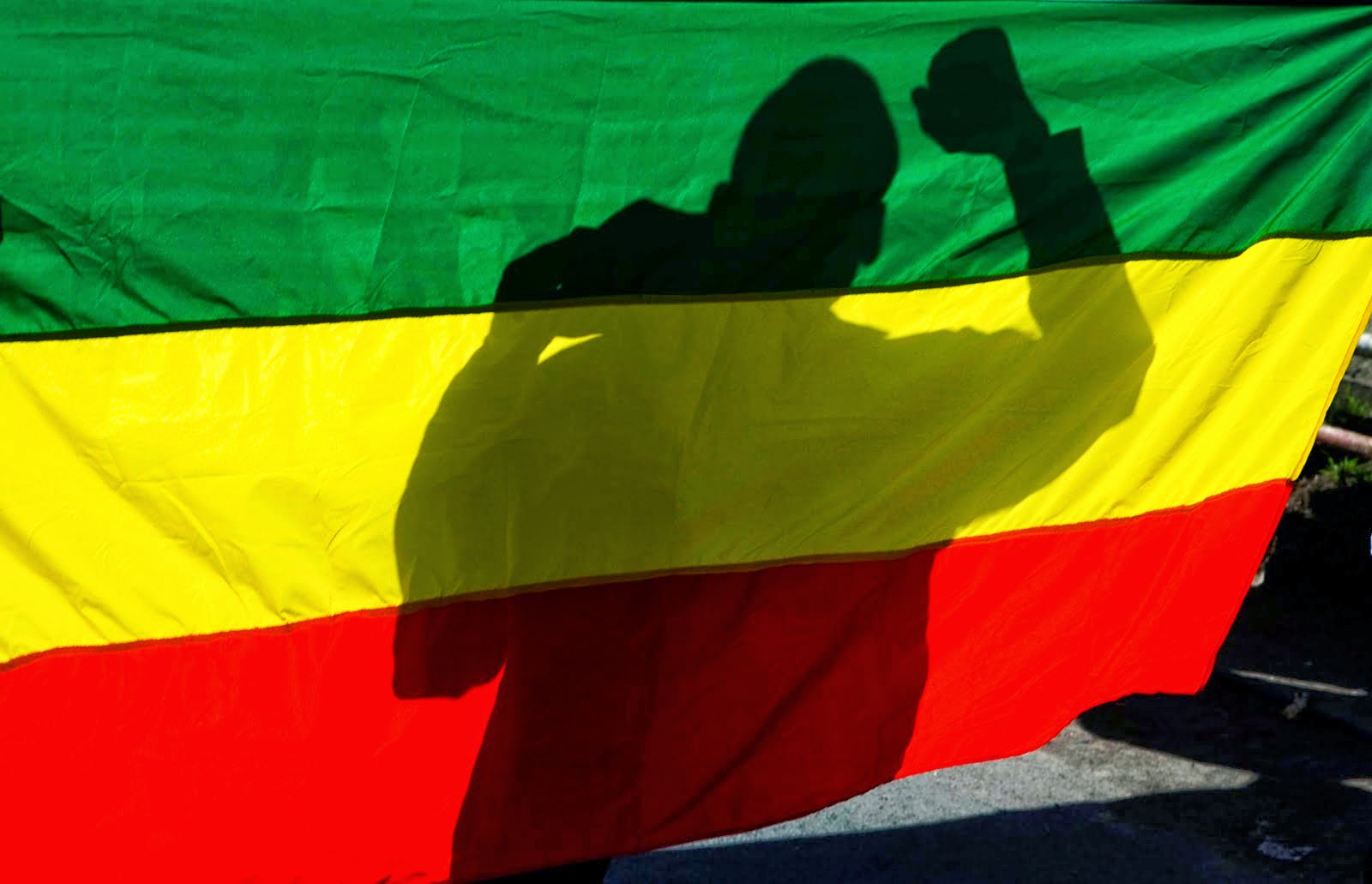By Hassen Hussein
May 2, 2014
To his credit, Kerry raised concerns about the tightening of press freedom in Ethiopia. “I made clear to Ethiopian officials that they need to create greater opportunities for citizens to be able to engage with their fellow citizens and with their government by opening up more space for civil society,” Kerry told reporters in Addis Ababa.
However, his discussions with Ethiopia’s leaders were overshadowed by South Sudan’s implosion — with continuing fragility in next-door Somalia, and souring Egypt-Ethiopia relations stirred by Ethiopia’s construction of the Great Renaissance Dam over the Nile, in the background.
This focus was unfortunate but hardly surprising. For over two decades, despite fleeting statements expressing “concern,” Washington has shied away from seriously engaging Ethiopian authorities on the need for genuine democratization. Without the latter, the country’s extended prosperity is in danger. “To support economic growth for the long term, the free marketplace of ideas matters just as much as free markets,” Kerry noted in his remarks. But he failed to underscore how rising instability could erode Ethiopia’s standing as a linchpin to the otherwise volatile Horn of Africa region’s stability and damage its newly minted image as an emerging economic powerhouse.
Growing dissent
Reports of the number of dead vary, but in clashes with security forces over the last few days, locals say at least 20 protesters have been killed and many others wounded in Ambo and Robe towns. The government acknowledged 11 deaths, adding at least 70 students were wounded in a bomb blast at Haramaya University in Eastern Oromia. Swedishand U.K. embassies in Addis Ababa updated travel warnings for their nationals urging those in Ethiopia to avoid visiting the area.
Ethnic Oromo students are protesting against a new urban development plan unveiled in April by the Addis Ababa city administration. Protesters say the city’s master plan, devised by ruling party functionaries without public input, would allow the sprawling metropolis to swallow up surrounding Oromo towns and rural villages.
Protesters fear the new plan would facilitate the eviction of thousands of farmers from their ancestral lands without proper compensation — an unjust process that has been happening since the city’s founding a century ago. Their land would be sold at dirt-cheap prices to foreign and domestic investors, exacerbating the country’s growing income inequality and diluting the Oromo national identity. In addition, the plan would condemn the Oromo, Ethiopia’s single largest ethnic group, to being an agrarian population in a fast-urbanizing country and balkanize their homeland into an eastern and western half — in a manner reminiscent of occupied Palestinian territories — leaving the state of Oromia with only nominal control.
The ongoing protests and crackdown on freedom of expression are the latest signs of growing discontent and Addis Ababa’s increasing authoritarianism. The U.S. State Department’s annual human rights report, released by Kerry on Feb. 27, details Ethiopia’s worsening human rights situation. In recent years, the country’s adoption of a spate of draconian laws, including its Charities and Societies Proclamation and Anti-Terrorism Law, has given security and intelligence forces and the vengeful judiciary carte blanche to criminalize all forms of dissent and to arrest opposition leaders.
While the student protests have so far been confined to college campuses, they echo a long-simmering popular grievance. The Oromo make up close to 40 percent of Ethiopia’s population of 94 million, but are conspicuously marginalized in that country’s political, economic and social life. The government’s refusal to address their complaints is a major bottleneck on the country’s democratization.
http://www.ethiomedia.com/16file/4550.html
Ethnic Oromo students are protesting against a new urban development plan unveiled in April by the Addis Ababa city administration. Protesters say the city’s master plan, devised by ruling party functionaries without public input, would allow the sprawling metropolis to swallow up surrounding Oromo towns and rural villages.
Protesters fear the new plan would facilitate the eviction of thousands of farmers from their ancestral lands without proper compensation — an unjust process that has been happening since the city’s founding a century ago. Their land would be sold at dirt-cheap prices to foreign and domestic investors, exacerbating the country’s growing income inequality and diluting the Oromo national identity. In addition, the plan would condemn the Oromo, Ethiopia’s single largest ethnic group, to being an agrarian population in a fast-urbanizing country and balkanize their homeland into an eastern and western half — in a manner reminiscent of occupied Palestinian territories — leaving the state of Oromia with only nominal control.
The ongoing protests and crackdown on freedom of expression are the latest signs of growing discontent and Addis Ababa’s increasing authoritarianism. The U.S. State Department’s annual human rights report, released by Kerry on Feb. 27, details Ethiopia’s worsening human rights situation. In recent years, the country’s adoption of a spate of draconian laws, including its Charities and Societies Proclamation and Anti-Terrorism Law, has given security and intelligence forces and the vengeful judiciary carte blanche to criminalize all forms of dissent and to arrest opposition leaders.
While the student protests have so far been confined to college campuses, they echo a long-simmering popular grievance. The Oromo make up close to 40 percent of Ethiopia’s population of 94 million, but are conspicuously marginalized in that country’s political, economic and social life. The government’s refusal to address their complaints is a major bottleneck on the country’s democratization.
http://www.ethiomedia.com/16file/4550.html

No comments:
Post a Comment